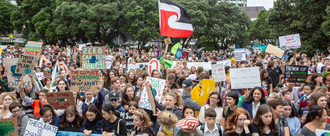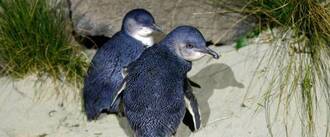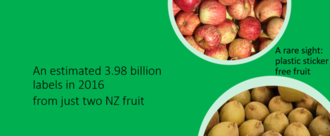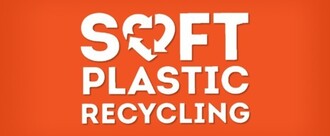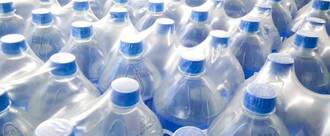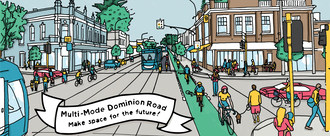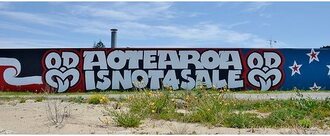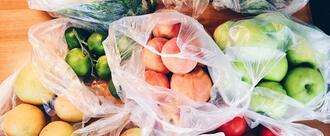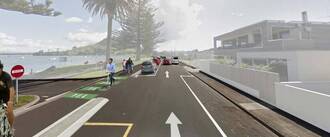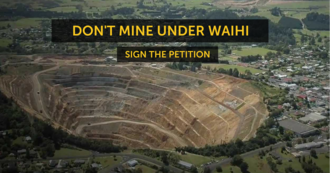-
An Open Letter from the Youth of AotearoaTo solve this crisis, everyone has a part to play. We are calling on all New Zealanders to support our call for action, and commit to helping drive change. ➡️ We are asking our business leaders to step up and stand alongside us. Current business practices are threatening our homes, our families and our communities. We will not stand by while greed for a quick profit undermines our future security, and fuels the loss of homes and livelihoods of our neighbours in the Pacific. If businesses want to continue to have the social license to operate, they need to be a part of the solution. We are the future of the economy, and we will not tolerate inaction on climate change. We ask you, our business leaders, to support our demands of Government and to commit to doing your bit by divesting your businesses from fossil fuels, reducing your emissions, and using your ingenuity and leadership to building the economy of the future; one which doesn’t cost us, and future generations, but instead safeguards our continued existence on earth. ➡️ We are asking our parents, grandparents, teachers and communities to step up alongside us. Think about the things you want for your children or the young people that you love; happiness, stability, freedom, peace, security, health. Climate breakdown puts all of these things at risk. Please listen to us, our hopes and dreams for the world, and help us to make them a reality. Your decisions every day, and your vote every three years, count. Empower your children to fight for their future, and stand in solidarity with them as they strike on September 27. So, will you join us? ❤️ You can also support the local campaigns for councils to take action on a safe climate future - support and share the campaign for your local council here: https://our.actionstation.org.nz/efforts/declare-a-climate-emergency13,679 of 15,000 SignaturesCreated by SchoolStrike4Climate NZ

-
Protect Timaru's Penguins — Improve Road Safety Along Marine ParadeLast night (08/12/28) a little penguin (kororā) was hit and killed by a car on Marine Parade in Timaru. The incident happened in front of 90 tourists and locals (including children) who had come to watch the penguins come ashore. The bird was of breeding age and its mate was seen calling for over an hour after it was killed. It is not known whether the pair had eggs or chicks on the nest, however, this is likely to be the case at is currently breeding season for kororā. Forest & Bird South Canterbury is calling on Timaru District Council to use this tragedy as an opportunity to reduce the speed limit to 30 km/hr, install judder bars or road islands, and consider closing the road to non-port-related traffic after dark. The current speed limit is 50 km/hr but our members have witnessed people driving at excess speeds along Marine Parade again and again. We often take down the registration numbers of vehicles that we see speeding and report them to local police, yet people continue to speed past — sometimes at up to 100 km/hr. We are exceptionally lucky to have this breeding colony of endangered penguins (kororā) so close to our town centre. After a short drive or walk, we can watch them come ashore — undeterred by traffic and noise from the port just metres away. The penguins are an increasingly important part of our local economy. Last year, they attracted up to 100 visitors every night, with some people visiting specifically to see them. This is a safety risk. Not just to the kororā, but also to the people who stand along Marine Parade to watch them come ashore. The Timaru District Council must keep visitors and penguins safe from dangerous driving by reducing the speed limit to 30 km/hr, installing judder bars or road islands, and considering the closure of the road to non-port-related traffic after dark. We would also like to see local police targeting speeding drivers with regular patrols in the area.1,467 of 2,000 SignaturesCreated by Kimberley Collins

-
No more plastic fruit or vegetable stickers for NZ produceRemoving plastic labels is publicly supported. As at 24 November 2018 86% of Stuff readers think plastic stickers on fruit should go.^^ Just two NZ produced fruit alone in 2016 resulted in an estimated 3.98 billion plastic labels.*** Plastic stickers also cause issues at compost facilities.^^^ This is unnecessary personal hassle for consumers and unnecessary use of plastic and environmental pollution. * https://www.nzherald.co.nz/nz/news/article.cfm?c_id=1&objectid=10352393 ^ e.g. https://www.theguardian.com/sustainable-business/2017/jan/16/ms-and-swedish-supermarkets-ditch-sticky-labels-for-natural-branding ** http://www.hortnz.co.nz/news-events-and-media/media-releases/new-zealanders-want-country-of-origin-labelling-on-fruit-and-veges/ *** In 2016 124m trays of Zespri kiwifruit were produced and 350,000 tonnes of apples. http://www.freshfacts.co.nz/files/freshfacts-2016.pdf ^^ https://www.stuff.co.nz/auckland/105890179/Fruit-stickers-are-overused-say-the-creators ^^^ https://modernfarmer.com/2018/03/little-produce-stickers-are-big-waste-problem/301 of 400 SignaturesCreated by Adam Crisp
-
Soft Plastics Recycling Bins for WhakatāneBeing included in the Love NZ Soft Plastic Recycling Scheme will help communities of the Eastern Bay of Plenty recycle: • Carrier Bags • Bread, pasta & rice bags • Fresh produce bags and net citrus bags • Frozen food bags • Confectionery wrap and lolly bags • Dairy wrappers • Plastic packaging around toilet paper, kitchen towels, nappies and sanitary products • Courier packs • Newspaper and Magazine wrap • Chocolate & muesli bar wrappers and Biscuit packets (wrapper only) • Chip packets • Ice cream wrappers • Cereal box liners • Recycle bubble wrap and large sheets of plastic that furniture comes wrapped in (cut into pieces the size of an A3 sheet of paper first) Basically anything made of plastic which can be scrunched into a ball. It will allow us to divert all these things away from landfill. Soft plastic packaging is not collected for recycling by councils because it can contaminate the recycling process. New Zealanders use over 1.6 billion plastic bags in the home every year! Soft plastic waste is being used to produce other objects such as park benches and fitness circuits for playgrounds. These bins will help us move up the waste hierarchy from, disposal, to recycle and might even get some of us thinking about how we can go further and prevent such waste in the first place.138 of 200 SignaturesCreated by Fiona Dominick
-
Stop multi-nationals profiting from our natural water resourcesOur Overseas Investment Act allows 'jobs, exports productivity and additional capital investment' to take absolute priority on any decisions made regarding our resources, natural or otherwise. These are apparently 'substantial and identifiable benefits'. This petition is founded on the concept that the health of our waters, our planet (in respect to production methods of plastic bottles, access to groundwater, and bottles destined for landfill at the very least) our iwi, and in fact everyone who relies on things like water and planets to live well, factor in as 'substantial and identifiable' points of consideration. There may be up to 60 jobs created over four years as a result of this operation, but at the risk of polluting sensitive land and further severing trust and relationships with tangata whenua. The 'jobs' and 'capital' arguments are the very same arguments employed again and again throughout history in spite of tangible damage to land and water, that often cannot be repaired. We are in the midst of a climate crisis, we are in a recycling and landfill crisis, and our waters are one of the most threatened aspects of the collective health of our country to date. Over one billion litres of water each year hold infinite value in ways that cannot be measured in jobs and capital. Let's not turn something pristine into a product that ultimately expands landfills, and further insults the deepest priorities we face right now, and let's prevent this from continuing to happen via outdated laws. Please also sign: https://our.actionstation.org.nz/petitions/stop-the-sale-of-otakiri-springs-to-chinese-bottling-giant-nongfu Overseas Investment Act: http://www.legislation.govt.nz/act/public/2005/0082/latest/DLM356881.html?search=ts_act_overseas+investment&sr=1 https://www.stuff.co.nz/business/104651548/overseas-investment-for-otakiri-springs-bottling-giant-approved-in-principle2,060 of 3,000 SignaturesCreated by Yasmeen Maria
-
Add bikeways to light rail on Dominion Road!Dominion Road is both a route AND a destination for people on bikes. Now, light rail is on the way – but with no clear plan for keeping bikes in the picture. That's a worry, because the potential is huge. So let's raise our voices to make it happen! 👧 Hundreds of people already bike along Dominion Road every day. Imagine thousands more of us on bikes. Kids biking to school. Residents going to the shops. Visitors and tourists exploring this iconic boulevard and the lively neighbourhoods along the route. 🚈 Light rail projects are a once-in-a-lifetime 'big dig", the perfect opportunity to future-proof major transport arteries. We won’t get another chance to do this for many decades. Cities around the world successfully combine light rail and bikeways to boost public transport AND bike travel. Auckland can, too! 🚲 Bikeways are the perfect combo with light rail. Everyone’s public transport journey starts and ends at a different point – and bikes expand easy access to stations from a few hundred metres on foot to a few kilometres on wheels. 🛍️ Bikeways on Dominion Road will bring more bike trips to and through the town centres, helping local shops thrive and grow. ♻️ Light rail is about creating car-free and carbon-free travel options for everyone along the route. Why compromise the environmental benefits of the project by leaving bikes out of the design? ✅ This is also a golden opportunity to solve the ‘Bike Bermuda Triangle’: the absence of safe north-south bike routes through the isthmus. Bridging this gap is as vital to a strategic bike network as Skypath. 📣 With tens of thousands of Aucklanders of all ages taking to cycling each year, adding great bikeways to light rail on this key route is smart, sustainable and strategic. This is a pivotal moment in the life of our city. Please join our call for bikeways as the key to making light rail truly transformational for Auckland! Check out Bike Auckland's design suggestions here: https://www.bikeauckland.org.nz/light-rail-isthmus-room-bikes-bike-akl-proposal/ And see an overview of the light rail project here: https://www.youtube.com/watch?v=RKdybt7F4os1,559 of 2,000 SignaturesCreated by Bike Auckland

-
Responsible Packaging Now: Open Letter to Hon Eugenie SageConsumers do not have consumer choice in packaging material associated with the products they purchase. They are usually left with difficult to recycle polystyrene, plastic bags and other packaging. If consumers are guaranteed the ability to return all packaging material to the retailer where the product was purchased from, this would drive retailers to demand (from manufacturers) that products are encased in easy-to-recycle packaging materials. Such laws were implemented in Europe during the 1990's, and have led to changes in community awareness and packaging. [1] While some NZ retailers may currently accept such material when returned to them, consumers often lack confidence in returning packaging due to concerns that they may be refused. Legislation guaranteeing consumers the right to return packaging would alleviate concerns, and encourage packaging to be returned for recycling or reuse. The proposed legislation would ensure that those who have the greatest ability to affect change in packaging material types (retailers and manufacturers) assume responsibility for the costs associated with end of life management of the packaging, therefore driving change. 1. EUROPEAN PACKAGING POLICY The consequences of a deposit system for disposable packaging based on the German example http://www.foodnet.cz/soubor.php?id=11315&kontrola=47963fffea4a1dfa9745ec4015fa54aa&foodnet=126 of 200 SignaturesCreated by Go Eco

-
Stop the sale of Otakiri Springs to foreign bottling giant NongfuAssociate Finance Minister David Clark and Land Information Minister Eugenie Sage granted an application under the Overseas Investments Act 2005 for Cresswell Ltd to purchase land to expand the existing Otakiri Springs water bottling plant near Whakatāne. A decision that will see 1.1 billion litres of Aotearoa New Zealand freshwater being bottled and exported. There is little information as to where the aquifer that supplies Otakiri springs comes from and how fast it recharges. The science behind the allocation of these aquifers is flawed. The data collected is not reliable enough to ensure that it is safe to collect water from. The depletion of the aquifer could potentially leave permanent damage to surrounding waterways. Tangata whenua believe that freshwater including groundwater has important cultural value. It is the belief that the mauri (life force) of the body of water (seen and unseen) needs to be intact to ensure the physical and spiritual survival of all living things. The mauri of Otakiri Springs or as local iwi and hapū know it as Te Otākiritanga ō Te Toki a Iratumoana, is at risk. The removal of water for the purposes of bottling for foreign exchange violates the mauri and sacredness of the water. This activity 1. Allows the continued contribution of plastic waste. 2. Sells New Zealand natural resources (freshwater) for corporate benefit. 3. Compromises the health and wellbeing of the waterways and aquifers. 4. Ignores the concerns of the local Whakatāne community who are directly affected by this activity. 5. Disregards section 6e of The Resource Management Act being the relationship of Māori and their culture and traditions with their ancestral lands. Who really benefits in this transaction? Not tangata whenua. Not Aotearoa as a nation. But multi-billionaire foreign investors - Nongfu. Bay of Plenty Regional Council still have the power to determine the safety and preservation of our natural resource (mauri) by denying the resource consent. The New Zealand Government cannot continue to market Aotearoa as “clean green” then make decisions that directly compromise the well-being of the waterways and aquifers. Intergenerational and sustainable approaches to the environment need to be implemented to ensure we are not leaving our children a barren wasteland. But firstly, we need to stop selling our natural resources at the detriment of ourselves. When our children ask, “What did you do?” Will the response be: “I cared?” Or will it be: “I sold out.” Mo nga uri whakaheke te take. For the future generations. Please also support the petition: Stop multi-nationals profiting from our natural water resources https://bit.ly/2MQQ38B Relevant articles: https://www.tvnz.co.nz/one-news/new-zealand/chinas-ban-foreign-waste-wake-up-call-nz-environmentalists https://www.stuff.co.nz/business/104695650/consent-granted-for-chinese-water-bottling-giant-to-purchase-otakiri-spring22,095 of 25,000 SignaturesCreated by Lanae Cable
-
Restore the Raumati wetlands in Queen Elizabeth ParkThis is important as Wellington has only 2.3 percent of its wetlands remaining and wetlands are increasingly recognised and valued for the ecosystem service they provide (GWRC Wetlands report for the proposed Natural Resources Plan July 2015). Maori used the wetlands of the Great Swamp to canoe between Paekakariki and Paraparaumu. Te kukuwai (wetlands) also supplied a lot of food. It would be a key climate-change initiative for the Kapiti Coast as drained peat lands emit significant amounts of carbon but absorb large amounts when re-wetted, making a carbon sink more efficient than forests. As invasive weeds such as gorse and blackberry cannot survive in wetlands, it would also allay community concerns about fire risk and use of herbicides. A former walk through the wetland sand dune could also be restored for public access in this recreation reserve. Under the farming lease, GWRC can negotiate the retirement of land giving reasonable notice. This petition is timed to coincide with GWRC's review of its Parks Network Plan this year. For more info on the importance of peat lands in climate-change mitigation please see https://drawdowniitkgp.wordpress.com/2017/12/06/peatlands-a-secret-and-surprising-weapon/845 of 1,000 SignaturesCreated by Friends of Queen Elizabeth Park

-
No Plastic Bags at Wellington City MarketsLike many people I used to be addicted to plastic. I purchased plastic products in plastic bags and this plastic waste went into plastic bin liners and ended up in a mountain of plastic. Some ended up in our oceans too. If I'm honest I just didn't think about it. I consumed and I wasted. More recently I realised that my individual actions have a part to play in collective destruction. Plastic is a scourge on our beautiful planet and I am ashamed that plastic is still commonplace in our communities. Sometimes issues like global warming, pollution and the scale of environmental degradation overwhelm me and I don't know what to do. But I know that I can reduce my plastic consumption. This is within my power and control. One tangible change I made was buying a stash of tote bags. Now I use them for the markets, shopping at the supermarket and running errands every day. They're a part of my life now. It isn't hard to carry them with me to the market and they're much stronger than plastic bags which is great because I buy a lot of produce! If plastic bags weren't an option at the markets I'm certain that people would transition to reusable bags quickly, especially if there was a bit of warning in the lead up. It makes no sense to have plastic bags at our markets when they're so harmful and the alternatives are just so easy! Wellington is a city that leads the way. Progressive Enterprises, which runs Countdown supermarkets, announced all its stores would be ditching single-use plastic bags by the end of the year. If a large corporation can make the switch then a local market can do the same. There is no reason good enough to continue with plastic bags.700 of 800 SignaturesCreated by Benjamin Johnson
-
Save the All Wheels Cruiseway Trial on Pilot Bay!A trial for a proposed cycleway (“all wheels cruiseway” for skateboards, scooters jogging prams, wheelchairs etc) around Pilot Bay is at risk of not getting off the ground. Councillors are voting next Monday 9 April whether to allow a six month pilot testing a one way route from Pilot Bay around Adams Ave to Maunganui Road to go ahead. Currently there is a 50/50 split in support for this project from elected members. TCC transport team have researched this proposal and refined it to ensure it meets balanced needs of our community for both car users and cyclists, they believe as we do, that combined with connecting cycle routes, this will give options for local people to not bring their cars in to an already overloaded network. The trial would create a 3 metre wide two-way cruise way, and only ONE less car parking space overall. One concern of councillors is that this proposal will create more traffic congestion on Maunganui Road. We dispute this thinking. The provision of this cruiseway system provides the very cycling infrastructure that Tauranga residents are asking their Council to provide for them so they can move around the communities without their cars. We need the community to tell Council there is much to gain with this proposal - from retailers who will enjoy increased sales, to the opportunity to reduce car congestion, to restoring the relaxed holiday vibe that makes Mount Maunganui one of the great destinations in New Zealand. The other important thing to remember, is that this is a trial, so it can be adjusted and modified in response to issues. We do not see positive change in our community without making change, and a trial empowers people to have a say in the final outcome, while giving a new approach a chance. Your support is vital to this petition, please sign and comment, if you live in The Mount, please briefly state this and how you and your friends and family would benefit. Grateful thanks Bike Mount252 of 300 SignaturesCreated by Greater Tauranga
-
Don’t mine under WaihiA multinational mining corporation is planning to expand its exploitation of Waihi by literally digging under the town. It must be stopped. OceanaGold, which owns the giant open cast pit mine in Waihi, has notified the local council that it wants to expand and mine under people’s homes. Mining under residents houses will be a disaster for a town that has had years of disturbance from the mine activity. There have been landslides in the mine and earth slips causing homes to sink. The uncertainty around the mine activity has affected house values and is wearing down the patience of residents. This is the same corporate giant that tried to sue the El Savador government $300million for regulating to protect the environment. It’s time we put people and our precious planet first and stop this giant private corporation undermining Waihi for its private profits. The corporation plans to lodge consents to mine with the local council which will be pressured by financial interests to accept it. With sustained public pressure against the company right now we can force the corporation to ditch its plans to dig under the town. Sign the petition to OceanaGold now to demand it withdraw plans now for their mine expansion. References OceanaGold proposes new underground mine at Waihi, 29 Mar 2018 http://www.nzherald.co.nz/nz/news/article.cfm?c_id=1&objectid=12021586 Waihi homeowners close to deal over subsidence 2013 http://www.nzherald.co.nz/nz/news/article.cfm?c_id=1&objectid=10857990 OceanaGold sues El Salvador https://www.theguardian.com/commentisfree/2014/oct/03/australian-mining-is-poisoning-el-salvador-it-could-soon-send-it-broke-too Map of Waihi gold mine: https://watchdog.org.nz/info/gold-mining-and-eden-park/966 of 1,000 SignaturesCreated by Linda Dalgleish

